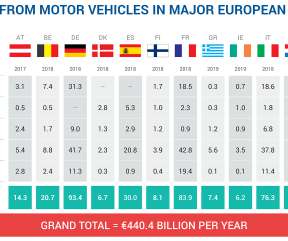Estonian startup UP Catalyst secures €2.09M; sustainable carbon nanomaterials and graphite from CO2
Green Car Congress
APRIL 21, 2022
These materials can be used in electric car batteries increasing the energy and power density, speeding up the charge rate and improving the lifetime significantly. million in grant funding secured earlier this year. UP Catalyst uses a molten salt carbon capture and electrochemical transformation method to reprocess the CO 2.












Let's personalize your content